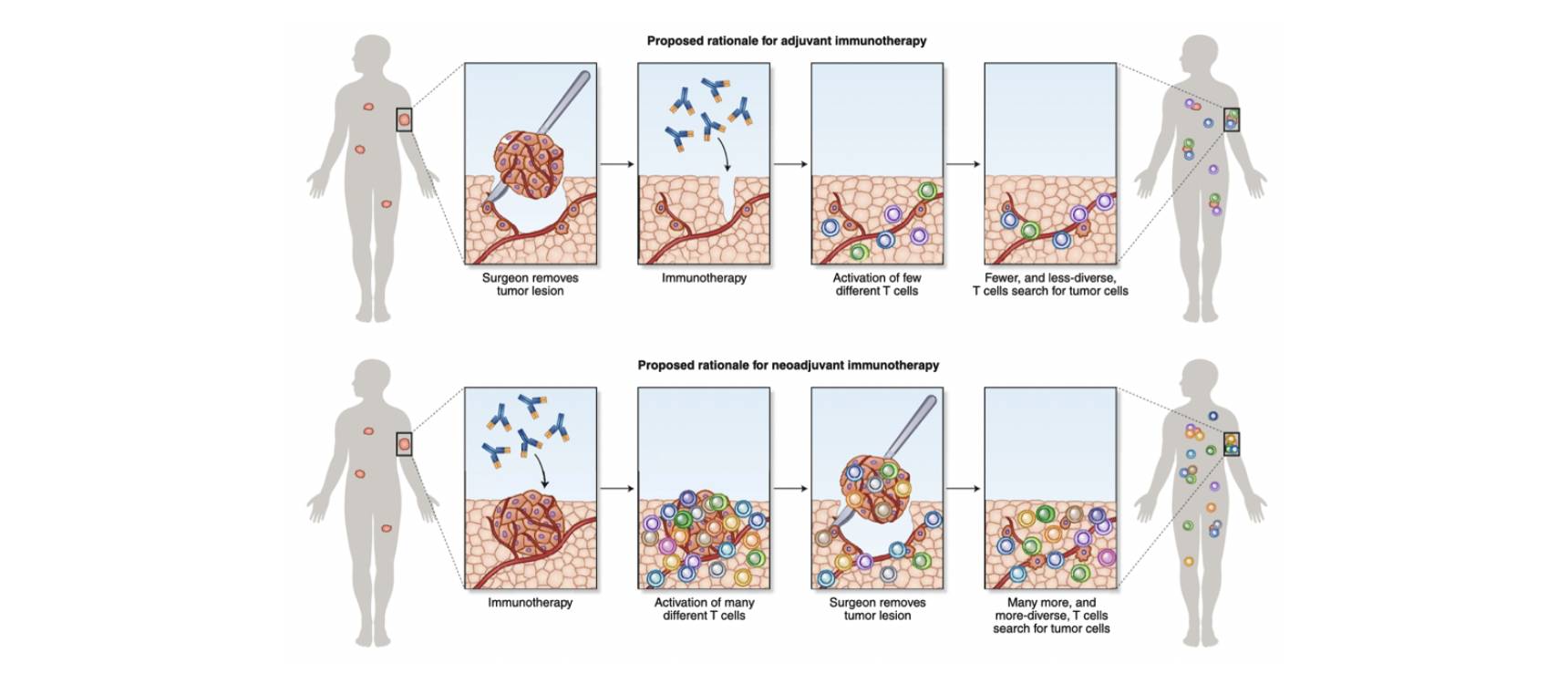Neodjuvant Cancer Immunotherapy
Immune checkpoint inhibition has revolutionized the management of patients with advanced malignancies by inducing durable tumor control and improving overall survival. In addition, checkpoint inhibitors are now an important pillar in the management of high-risk early-stage malignancies when administered adjuvantly, including melanoma. Because broad and effective immune activation depends on the immune system being exposed to a breadth of antigens, it is hypothesized that checkpoint inhibition in early-stage melanoma may be more effective when the drug is administered neoadjuvantly, whilst the tumor is still present, rather than adjuvantly, after complete resection (see Figure).
